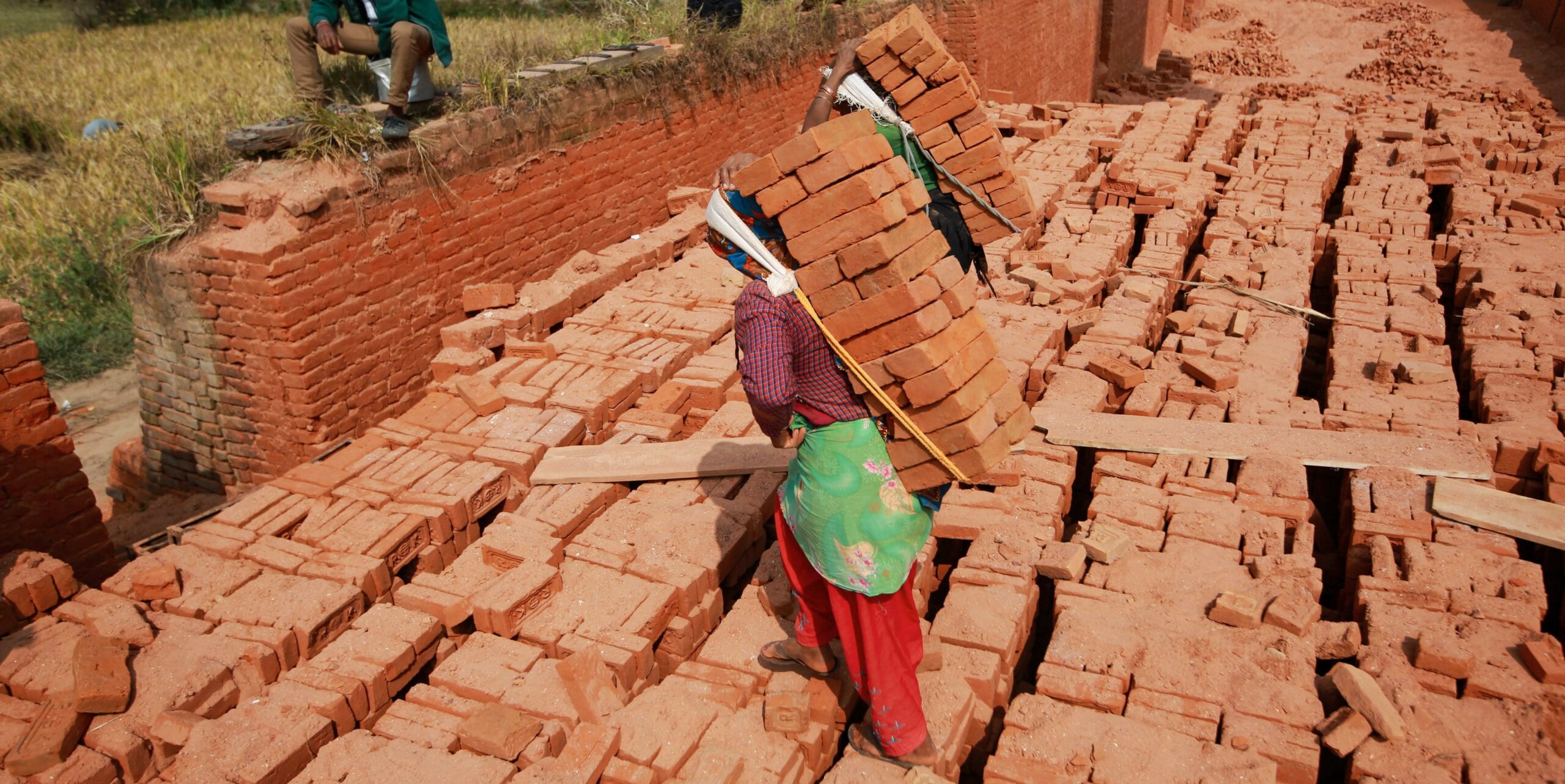Published Mar 23, 2025 | 12:00 PM ⚊ Updated Mar 23, 2025 | 12:00 PM

File photo of labourers. (Representational image/Creative Commons)
Synopsis: The rising mercury is likely to impact the kidneys. While those working outdoors are at high risk, even white-collar workers are not safe.
The rising heat condition is becoming a growing health concern. Among the most vulnerable organs affected by prolonged heat exposure is the kidney, said Dr N Gopalakrishnan, a leading nephrologist and Member Secretary of the Transplant Authority of Tamil Nadu (TRANSTAN).
A 2023 study conducted by Madras Medical College (MMC) in collaboration with the Tamil Nadu Family Welfare and Health Department revealed that climate change is significantly impacting kidney health, contributing to chronic kidney disease (CKD), an English daily reported.
This issue particularly affects agricultural workers, construction workers, and those who returned from the Middle East, where they had worked for many years.
Others in the unorganised sector, such as truck drivers, road construction workers, and brick-kiln labourers, are also at high risk.
Dr. Gopalakrishnan shared with South First the deeper implications of the MMC findings.
The study conducted by the Institute of Community Medicine at MMC, found that 60% of CKD cases in Tamil Nadu were among rural residents. The research screened 4,682 people across the state, with 58.9% of participants being women.
The findings highlighted the critical role of environmental and occupational factors, particularly in rural areas where extreme heat and dehydration are common.
The study identified hypertension as the leading cause of CKD (22.4%), followed by diabetes (9.6%). Alarmingly, in 53.4% of cases, the cause of CKD remained unknown, suggesting that additional environmental or lifestyle factors could be contributing.
Extreme heat is increasingly recognised as a potential trigger for kidney stress, particularly among outdoor labourers.
While CKD is often considered a silent disease, the study found that only 6.8% of patients exhibited symptoms, making early detection difficult. More than half of those affected were between 30 and 60 years old, a demographic group that forms the backbone of Tamil Nadu’s workforce.
With 8.7% of the state’s population in CKD stage 3 or higher, the issue demands urgent attention.
As intense heat becomes more frequent, doctors warned that chronic dehydration, heat stress, and electrolyte imbalances can accelerate kidney damage.
High temperatures cause excessive sweating, leading to the loss of fluids and essential minerals, which in turn affects kidney filtration and function. Repeated dehydration episodes have been linked to long-term kidney disease, including CKD and kidney stones.
Dr. Gopalakrishnan emphasised that climate change is not just an abstract academic topic but a pressing reality affecting lives worldwide. He outlined three major environmental threats that contribute to kidney disease:
Prolonged exposure to extreme heat can lead to heat stress nephropathy, a condition that damages the kidneys over time. With longer summers and rising peak temperatures, the risk of heat-related kidney damage is increasing every year.
According to estimates, 99% of the global population is exposed to unsafe air quality, particularly high levels of PM 2.5 particles. These tiny pollutants, much smaller than a human hair (which is 70–90 microns thick), can enter the bloodstream through the lungs and affect various organs, including the kidneys.
Agricultural workers exposed to pesticides and fertilisers, construction workers inhaling silica dust, and miners working with silicon-based materials face heightened risks of kidney disease.
Dr Gopalakrishnan warned that the combination of extreme heat, environmental pollution, and chemical exposure has been identified as a significant cause of CKDu (Chronic Kidney Disease of Unknown Cause), affecting individuals with no prior history of diabetes or other chronic illnesses.
Dr Gopalakrishnan identified specific segments of the working population as being more vulnerable to these factors, including:
While even those in white-collar jobs face some risk, the danger is significantly higher for people engaged in outdoor labour.
Dr Gopalakrishnan stressed that addressing this crisis requires a societal response rather than just individual responsibility. Preventive measures include:
He stated that the Tamil Nadu government has taken significant steps to combat kidney disease by conducting mass screenings, especially among workers directly exposed to extreme heat.
Through regular screening camps, individuals with abnormal protein levels in their urine are referred for secondary-level treatment, ensuring early intervention and better health outcomes.
The government has also implemented initiatives like Makkalai Thedi Maruthuvam, where healthcare workers visit households to detect early symptoms of various diseases, including kidney issues.
He emphasised that with climate change intensifying, addressing heat-induced kidney disease must be a public health priority.
A combination of policy action, workplace reforms, and awareness programmes can help mitigate this silent crisis affecting thousands in Tamil Nadu’s workforce.
(Edited by Majnu Babu).

